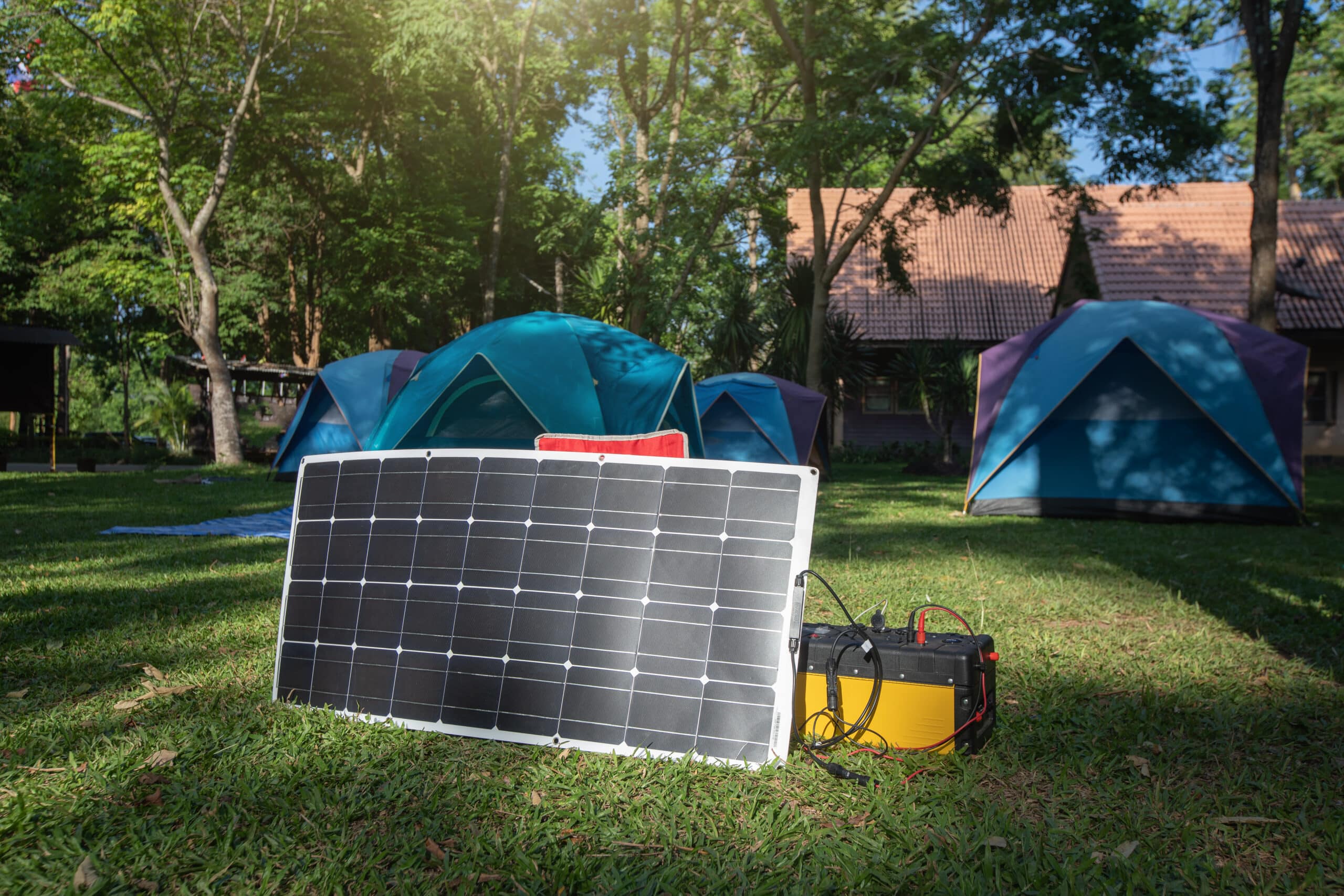How Long Does A Leisure Battery Charge Last?
Some of the links below are affiliate links. As an Amazon Associate, I earn from qualifying purchases. This means that, at zero cost to you, I will earn an affiliate commission if you click through the link and finalize a purchase.
Leisure batteries are crucial for motorhomes and campers as they help power things such as fridges, interior lights and other electricals that are within the vehhicle. Though if you are looking at spend a night or two off grid and not having access to a power source you might want to know how long the battery can last without charging.
Leisure batteries can range in duration depending on the size of your battery, what you are using on the battery and when you last charged it. These factors can completley change the outcome of your leisure battery charge and so can’t be quickly calculated.
In this article, we are going to be looking at what causes a leisure battery to run low, what to do to prevent the battery from draining other things you might need to know about leisure batteries.
How Long Does A Leisure Battery Charge Last?
There are six different types of Leisure batteries you can invest in today, and these include:
- Lithium LiFePO4 Leisure Batteries
- Lead Crystal Leisure Batteries
- Gel Leisure Batteries
- AGM (Absorbed Glass Mat) Leisure Batteries
- Sealed Lead Acid Leisure Batteries
- Open Lead Acid Leisure Batteries
In regards to how long a charge will last in all these leisure batteries, the right answer is that ‘it depends on how much current is getting drawn from the particular battery.’
Capacity in leisure batteries is measured in Ah (amp hours), and in theory, a 100Ah leisure battery should offer 100A for an hour or 1A for 100 hours – but sadly, it isn’t that simple.
In reality, the higher the current drawn from the battery, the less the actual capacity will be – and the greater the Ah the leisure battery has, the longer you should expect it to last and the fewer times you will be required to recharge it.
If you’ve already invested in a leisure battery with a low amp-hour capacity, however, this doesn’t mean you’re already doomed. By the end of the guide, I’ll share with you several tips you can employ to help ensure that your leisure battery lasts significantly longer than its average period.
Does the Size of the Battery Change the Outcome?
Yes, it does.
Just like the good old starter battery, the downside with leisure batteries is that the more power, the greater the weight of the battery and the bigger the physical size. I understand, however, that none of these will be an issue when space is available and the weight load isn’t an issue.
With that in mind, you will need to trade off one thing against the other – and the choice you eventually go with will depend on your priorities.
Infrequent and emergency use are the only things that can allow you to get away with investing in a cheaper, lighter, and smaller leisure battery compared to an individual who spends a lot of their time camping off the grid.
What Other Components Affect Battery Life?
1. Corrosion
Battery terminals tend to corrode over time, and keeping them clean from such buildup is one of the best ways to extend the life of your leisure battery. To do this, sporadically scrub the terminals using a toothbrush dipped in a water and baking soda mixture. Consequently, using a spray bottle filled with cold water, rinse off the mixture and dry the surface with a clean cloth.
2. Poor Connections
As your Leisure battery ages, so do the electrical connections. If these old connections start corroding and go unnoticed, they might easily cause different types of faults that affect the battery’s life. Always take a few hours from time to time and find new faults that can be fixed in minutes.
3. Age of Your Battery
There are only so many years your leisure battery can work for. As a general rule of thumb, you should expect your battery to serve you for 6 to 7 years if you’re really taking good care of it and are using a great charger.
Anyway, the older your leisure battery is, the more you should expect the age to affect its life.
4. Extreme Temperatures
Nothing takes more of a toll on Leisure batteries than extreme temperatures. If you’ll be using yours in hot summers, then expect the battery to age more quickly. Using a leisure battery in extremely cold weather, on the other hand, will cause your appliance to use up more power.
This is why I recommend (in the next section) that you should ensure you test your battery every season to confirm the exact usage.
How Can I Make My Leisure Battery Charge Last Longer?
Yeah, there are several things you can do to ensure that the charge lasts longer, and they include:
1. Switch off appliances.
Accidentally leaving appliances ON can, without a doubt, put a heavy toll on your leisure battery. Ensure you turn them all off when they’re not in use. Since extended periods of idling also tend to wear down a battery, using this trick should put less wear and tear on your Leisure battery.
2. Test your leisure battery often.
Knowing the condition of your leisure battery matters a lot if your goal is to ensure it lasts longer. Testing the batter’s output voltage levels using a battery tester will permit you to keep track of how well you are maintaining it. This trick should eventually also let you know when it’s time to invest in a new one.
3. Switch off the inverter.
This is a favorite of mine. The inverter’s switch is close to the floor, making it easy to brush and switch on the inverter. I know, this can be a bit of a nuisance, so always ensure that the inverter is off when it’s not in use because it may still be consuming power.
4. Never leave your battery in a discharged state.
It’s not advisable to ever leave your leisure battery in a discharged state, i.e. letting it go flat. Battery cells rapidly degrade in this state, and this can eventually cause your Leisure battery to start draining faster.
5. Adequately charge the battery.
While this sounds like a no-brainer, it’s the trick that most Leisure Battery owners tend to overlook. If your leisure battery isn’t charged to the fullest every time, then you shouldn’t expect its charge to last longer.
One of the things that result in inadequately charged leisure batteries is using really cheap chargers on really expensive batteries.
6. Ensure your leisure battery isn’t faulty.
One of the main causes of battery drain is faulty leisure batteries. In these cases, the battery may be cold, old, or just needs to be replaced. Faulty pieces of equipment such as chargers or any other thing connected to the leisure battery can also quickly drain the product.

